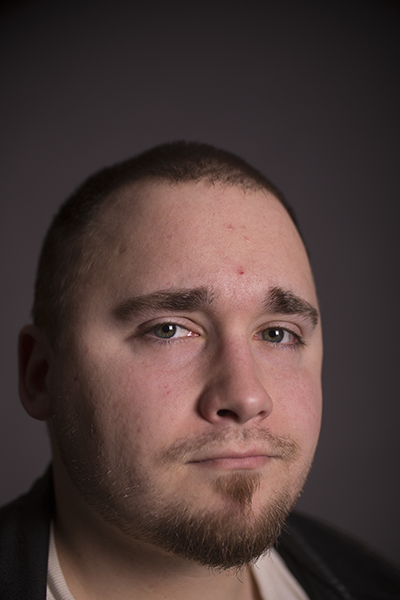Veterans coming home, moving forward
November 9, 2012
Dylan Smith
“Civilian life is completely different, so it takes a lot of adjusting,” said Dylan Smith, a former Army cavalry scout. “I don’t think people take that into account.”
Smith enlisted in 2005, right out of high school.
He was deployed to the Kunar Province in Afghanistan in 2007 for 15 months, where his unit’s mission was to help the “socioeconomic reconstruction and stabilization” along the Pakistani border.
Smith was deployed a second time, in 2010, where his unit provided assistance to Navy Seal and Army Ranger units to stabilize the Logar Province area of Afghanistan.
“That was a lot of seek and destroy missions,” he said.
Later that year, Smith was honorably discharged. Like many student veterans on campus, he is having problems adjusting from the “adrenaline heavy” environment of the Army.
“I wanted to follow in [my grandfather’s] footsteps and serve my country,” said Smith, an exploratory major. Smith’s grandfather was an infantryman with the Big Red One, the 1st Infantry Division during the Vietnam War.
Dale Dunford
“Now that I got out, I would go back in, in a heartbeat,” Dale Dunford said.
Dunford, senior biology major, wanted to be in the military since he was a kid. In September 2005, he joined the Marine Corps as an infantryman.
A year later, he was deployed to Barwanah, Iraq, where his mission, he said, was to “walk around and wait to get shot at.”
Dunford was in the country for eight days before he was injured while on patrol.
“We were providing security for another Marine who had been shot four times,” Dunford says. “The bullet went into my shoulder and broke into three pieces.”
After being injured, Dunford was sent to Germany to receive treatment for his wounds. By February, Dunford was back with his unit in Iraq.
He was deployed again in February 2008 to Karmah, Iraq. His unit took turns living in the Iraqi Police station, training the IPs, going on joint patrols and helping rebuild schools.
He was honorably discharged from the Marine Corps in 2009. He said he had gotten tired of the “bullshit” of being in the military.
Harry McFarland
“I’ve always wanted to join the military,” Harry McFarland said. “It’s a family tradition.”
McFarland said he can trace his family’s military involvement to the U.S. Civil War. He left for basic training in 1993 where he would train to become a medic in the Army.
McFarland was based stateside until November 2002, when his unit, the 3rd Infantry Division, was called up to Kuwait. By March, McFarland’s unit was given the order to “roll north.”
“We pretty much led the trail into Iraq and captured Baghdad,” said McFarland.
McFarland was deployed two more times — once in 2005 to Central Baghdad, Iraq, to provide security and train the Iraqi Army, and once in 2010 to Mosul, Iraq, where he worked in a combat support hospital.
“I was tired of deploying,” he said.
McFarland joined the reserves in 2006 because he wanted to start his college education.
Angie Miller
“I’d always wanted to see the world, and I like water. [I wanted] to get the heck out of farm country Ohio,” said Angie Miller, senior psychology major and president of the Kent State Veterans Club.
In 1997, Miller joined the Navy and was accepted into the Navy’s Nuclear Power School.
“I made it through nuke school,” Miller said, “which was an accomplishment because most of the girls got weeded out.”
When she graduated, she was given the rating of Machinist’s Mate and promoted to Petty Officer Third Class.
When the Sept. 11, 2001, attacks happened, Miller was eight months pregnant, and her husband was out to sea on the U.S.S. Carl Vinson. Stationed at Bangor Sub Base in Washington state, Miller awaited the birth of her first child.
“I wasn’t worried about [my husband]. … He was on an aircraft carrier. It’s protected, no big deal.”
Damien Miller was born on October 13, 2001, the birthday of the Navy, at a naval hospital to parents both serving in the U.S. Navy.
Contact Coty Giannelli at [email protected].












